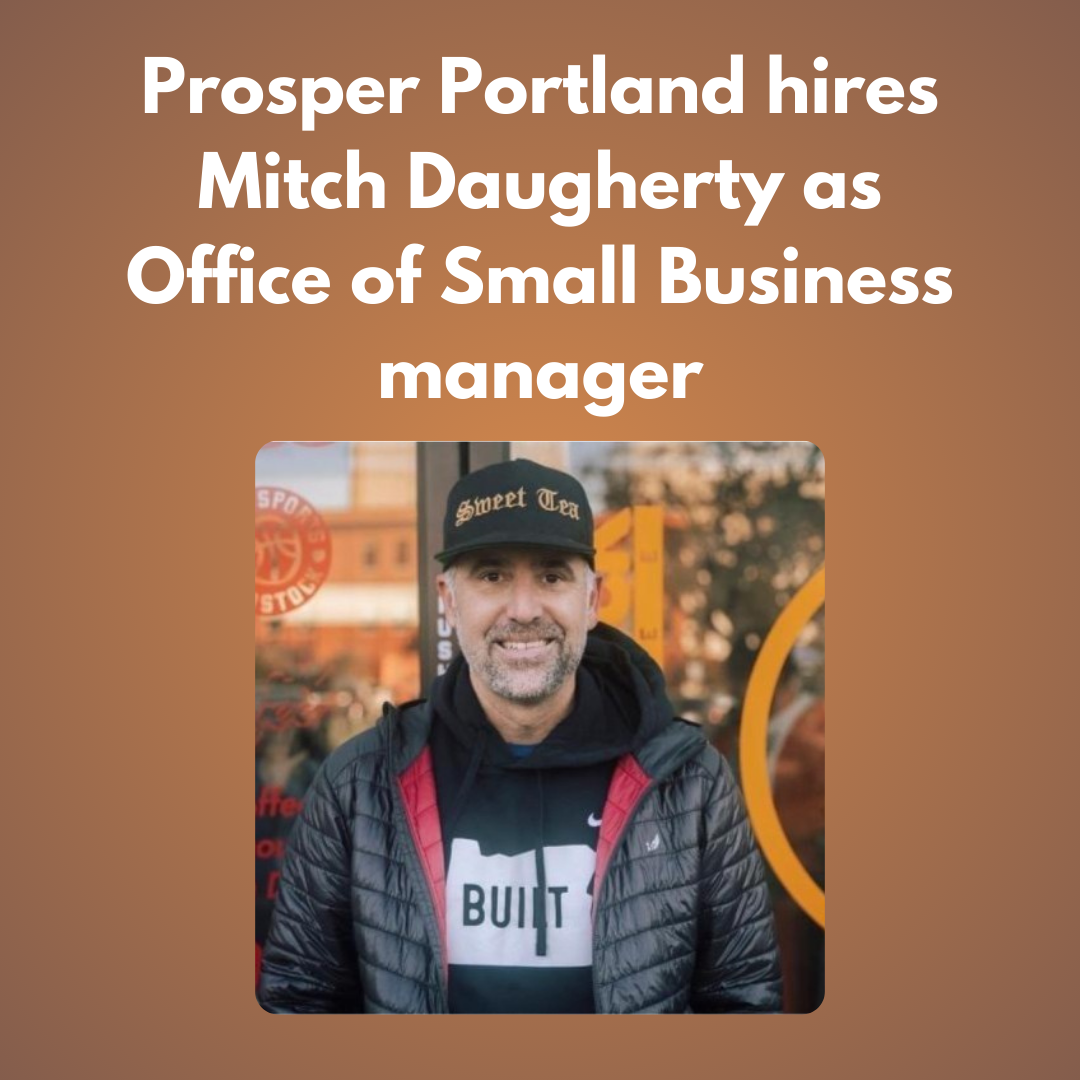Frequently Asked Questions about the Workshop Blocks
Prosper Portland, the city’s economic and urban development agency, purchased three parcels from the Oregon Department of Transportation (ODOT) in 2017. The three parcels, now commonly referred to as the Workshop Blocks, were purchased for $2,845,000. The goal of acquiring the long-vacant parcels is to encourage redevelopment in alignment with Central Eastside priorities. ODOT retains ownership of the portion of properties immediately adjacent to the I–5 freeway.
Since buying the properties, Prosper Portland has leased them out to support various City and interim-use needs. Staff has also assessed the environmental clean-up necessary to develop the properties and, more recently, received a fair market appraisal for Block B.
As the city’s economic development agency, Prosper Portland focuses on balancing the need to maximize return on investment with opportunities to redevelop underutilized properties for community benefit. Prosper Portland envisioned finding a long-term development partner who would either lease or purchase (or a combination thereof) the three parcels.
To that end, Prosper Portland issued a request for proposals in December 2017 for redevelopment of the blocks. The RFP included multiple goals: industrial mixed-use development, maximize development potential, address parking requirements, connection to the Eastbank Esplanade, compatibility with zoning requirements, timeliness of development, minimizing public financing, and demonstrating an emphasis on equity in design, construction, and operations.
Beam Development’s team, which included Colas Construction, was selected through the Prosper Portland RFP process, which included community-member participation throughout the selection process. The Beam proposal included a sequenced industry-focused office development over the three blocks. On April 13, 2020, Prosper Portland Board of Commissioners approved a term sheet with Beam Development that authorized a 99–year ground lease for Block A, gave them rights to develop on Blocks B and C via an exclusivity period, and included no public subsidy.
There is no public funding provided for this project.
The global impact of the pandemic rendered new urban commercial and industrial office development and related financing infeasible. This impact continues with the rise in employees working from home. Locally, the office market softened significantly, with Portland’s central city carrying much of that impact and continuing to experience significant office vacancy.
As a result, Beam Development partnered with Colas Development Group to look for new opportunities to bring development to the area in alignment with what is allowed in an industrial zone. After discussion with Live Nation, they proposed an entertainment venue for Block B that would fill an existing gap in Portland’s venue market while bringing a destination use to the Central Eastside. The proposed project aligns with the RFP goals of maximizing timely development consistent with zoning requirements and with no public subsidy. The remaining two blocks will also align with land use requirements and the key tenets of the RFP.
No, the Beam/Colas team alerted Prosper Portland of its discussions with Live Nation based on the radical shift in the office market and their proposed revision to redevelopment. Prosper Portland agreed with the revision due to the development’s continued adherence to the goals in the RFP. In addition, Beam/Colas worked closely with the Central Eastside Industrial Council (CEIC) to ensure any revision to the proposal aligned with the CEIC’s priorities.
Prosper Portland partners with private and nonprofit developers to deliver new development in key areas of the city and does not develop property directly. Prosper Portland purchased the properties from ODOT to activate the long-vacant parcels in the heart of the Central Eastside. Selling the property to the Beam/Colas team advances this objective and has received strong support from CEIC for the potential to support adjacent businesses and firms who continue to struggle because of post-pandemic trends and impacts. The Prosper Portland Board makes final decisions regarding land disposition. Prosper Portland selling the site to Beam/Colas won’t be official until the Board has approved specific terms of sale, including the acceptance of an independent property appraisal.
Block B is appraised at a market value of $2,410,000. It is proposed to be sold for market value net of any environmental conditions. Prosper Portland set a not to exceed amount of $749,000 environmental clean-up of the parcel consistent with documented environmental remediation costs.
Prosper Portland will retain ownership of Blocks A and C. The term sheet for Blocks A & C will guide the basis for negotiating purchase and sale agreements or long-term lease agreements related to those individual blocks in the future.
With one-time proceeds from the land sale rather than a long-term ground lease, Prosper Portland will have access to over $2 million dollars in the near-term to reinvest both in the Central Eastside and the broader city through its loan and grant programs for businesses of all sizes. This will also allow Prosper Portland to make more funding available to support community priorities for the local music industry.
The Workshop Blocks are zoned for industrial use (General Industrial IG 1) which does not allow for residential development.
Prosper Portland retained Johnson Economics to undertake an economic impact study that confirmed the gap in venue size within the Portland market, estimated the economic impact of adding a new venue to the market, and collected national case studies to better understand potential impacts of Live Nation-controlled space on the Portland market and other music venue operators.
National booking data indicates that roughly 43% of shows have between 1,000 and 4,000 attendees. This show size accounts for an estimated 32% of tickets sold and 22% of revenues nationwide. According to the study, the proposed facility addresses a critical gap in the city’s overall portfolio of venues, with limited overlap with existing facilities. Construction of the venue will result in $47.2 million in direct investment. Once constructed, the venue will employ 71 full time workers and is anticipated to drive more than 5,000 room nights per year to local hotels by 2029.
Prosper Portland regularly engages with the Central Eastside Industrial Council’s land use committee about its strategic priorities in the district and shared regular updates about the project. In addition, Prosper Portland held two community round tables in June and September 2023 to provide input on the Johnson Economics’ impact study and to address questions and/or concerns about the project. Prosper Portland also attended a fall 2023 event convened by MusicPortland to hear from community and provide information and clarification.
Collecting data on the live music industry can be challenging. Pollstar data is readily available and cited in the report; however, it is limited based on which venues submit data on a regular basis. With feedback from local industry partners participating in the round tables, MusicPortland also provided data from NearHear, a free event calendar and music aggregator that coordinates local events in the Portland metro area for smaller venues.
The report affirms that a proposed concert venue addresses gaps in the current entertainment venue offerings in the Portland market. This type of venue will drive increased numbers of visitors and foot traffic to Portland’s central city. The important role and benefits of cultural venues has been repeatedly highlighted in various analyses in addition to the economic impact statement, including through the Governor’s Central City task force convening and findings.
Specific to LiveNation as a tenant in the Beam/Colas-owned venue, LiveNation shared the following commitments as part of discussions with community partners: Live Nation would operate as an “open venue” enabling other booking agents to schedule at the venue and they estimated that annually 16% of bookings at the venue to be made available to outside promoters.
The attendees represented a swath of interested stakeholders including business and property owners within the Central Eastside District and members of the Central Eastside Industrial Council, representatives from the music industry (both independent venue owners/operators and Music Portland), Portland 5 Center for the Arts, Mayor Wheeler’s and Commissioner Rubio’s offices, Travel Portland, Live Nation, Beam and Colas Development Teams, OMSI, and Johnson Economics.
The development of this project must comply with Prosper Portland’s Business Equity Program and the Workforce Training and Hiring Program. They are designed to improve outcomes for State of Oregon Certified small businesses and to maximize apprenticeship and job opportunities in the construction trades for those who have been historically underrepresented in the construction industry. Certified Firms are Disadvantaged/Minority/Women/Emerging Small Business and Service-Disabled Veteran (sometimes abbreviated as “D/M/W/ESB/SDV”) firms as certified by the State of Oregon’s Certification Office for Business Inclusion and Diversity. The policies’ overarching goals are to promote economic growth; build small business capacity and expand competition in the marketplace; and connect residents to job training resources and opportunities that allow them to advance to higher-skilled, higher-wage jobs within the construction industry.
The project must also comply with the Green Building Policy and it will pursue Energy Trust of Oregon’s Path to Net Zero. Through the land use process, the City of Portland granted an adjustment to the eco-roof requirement and allowed an alternative strategy using vegetated above ground planters to meet requirements for the stormwater management plan. Unplanted roof areas will be painted white to reduce any heat island effect.



